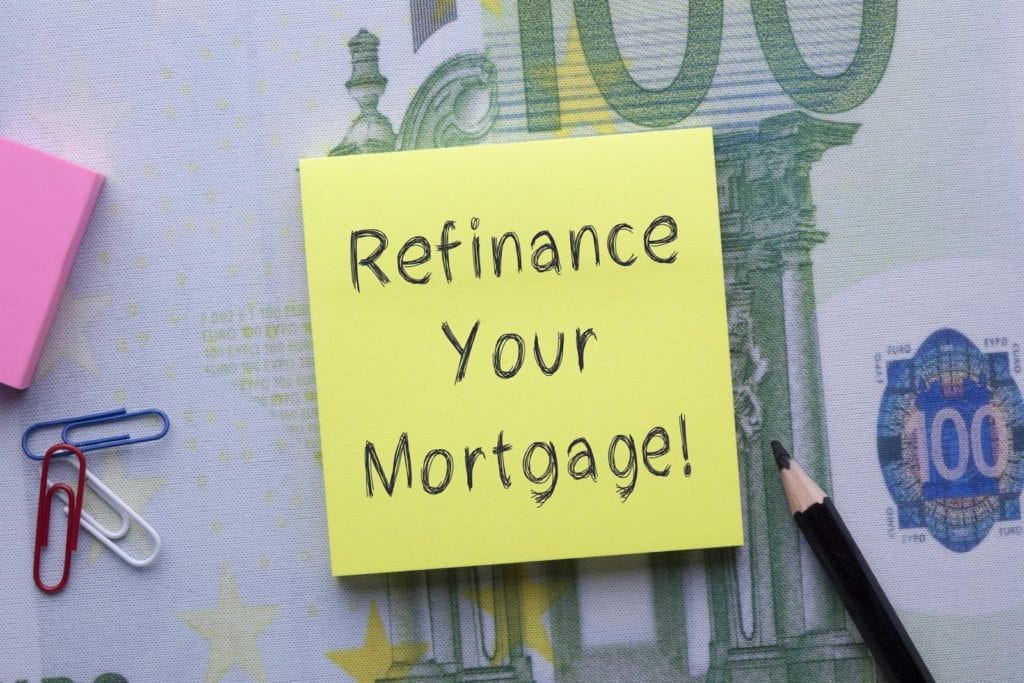The coronavirus pandemic had an immense impact on every industry and market in the world. A majority of industries suffered such as hospitality and leisure, whereas the US housing market saw a major boom with housing prices skyrocketing and mortgage rates plummeting. Mortgage refinance rates are currently at 2.25%! So, the question arises, is now the best time to get your mortgage refinanced? Or should you wait for further lows?
What is Mortgage Refinancing?
First, it is important to understand what is refinancing. Mortgage refinancing is the process of paying off your original mortgage with a new mortgage that has better terms and conditions. One of the biggest reasons to get a refinance is to make use of the lower mortgage rates in the market.
Refinancing can help you lower your monthly mortgage payment as a result of the lower interest that has to be paid. Refinancing and reducing the rate even by 1% can have a major impact, for example, on a $400,000 mortgage balance, if you refinance after 10 years from a 4% to 3%, the monthly mortgage payment can reduce from $1,900 to $1,300 saving a total of $600 every month!

Should You Refinance?
There are several major reasons to consider refinancing:
- Record Low Mortgage Rates – Mortgage rates are historically low as compared to the previous years. The mortgage rate today is 2.25%, whereas, the average rate in 2019 was 4.2%! This is a massive amount of savings over the long run, making lower rates the biggest factor to get a mortgage refinance. Low rates persisted in 2020, however, these low rates are trending upwards. As the vaccination rates increase, the economy opens up and businesses re-open at full capacity, rates are likely to increase. Another big factor that could push interest rates further up is the economic relief provided by the government. Although the rates go up and down, the average rate is trending upward.
Now, that the major reason to get a refinance has been covered, there are several other factors that can help push you over if you are on the fence: - Cash-Out Refinance – Cash-out refinance is the process of taking additional funds out when you refinance. This can be a major reason to refinance, first, if you wanted additional funds for home renovation, a cash-out refinance could provide a cheaper source of funds as compared to other alternatives such as personal loans. Second, if you have other debt such as credit card debt or auto loans which have very high-interest rate charges, a cash-out refinance at a lower rate can be used to pay off these loans.
- Change Loan Conditions – If you have a 30-year mortgage and have funds saved up, you can refinance into a 15-year mortgage, which will help save on total interest payments. Similarly, if you have a 15-year mortgage and cannot manage the higher monthly mortgage payments, then you can refinance into a 30-year mortgage for lower payments. If you have an adjustable-rate mortgage (ARM) that does not have consistent mortgage payments, you can convert to a fixed rate that has consistent and equal monthly payments.
- Remove Mortgage Insurance – If you have an FHA loan, refinancing might be one of your only options to eliminate FHA Mortgage Insurance Premium (MIP). FHA MIP cannot be removed unless at the start of the loan the down payment is greater than 10% or you refinance into a conventional loan.

There are several reasons to refinance, however, there are also a few reasons why you should not refinance:
- Poor Credit – If your credit score has deteriorated as a result of the pandemic or if you have lost your job. You should not refinance as it will be difficult to get a lower rate.
- Low Home Equity – If your mortgage has just begun and you do not have even 15% home equity, getting a refinance will be difficult.
- High Closing Costs – Mortgage refinancing is not free, closing costs can get expensive. They can account for 1% to 3% of the mortgage balance. Therefore, if you do not have funds saved up, you can either postpone refinancing or include closing costs into the loan.
- Length of Stay – If you plan to leave the home in less than 5 years then getting a refinance will not be worth it because the initial few years of savings are used to pay off closing costs.
In conclusion, mortgage refinancing can save thousands of dollars over the life of the loan if you can get a lower mortgage rate. Today’s market environment is ideal with lower mortgage rates, hence, if you can get a refinance, you should definitely do it! However, if you have poor credit and are facing other financial hardships, you should wait, maybe mortgage rates dip even lower. In any case, be sure to consider the impact on your short-term liquidity and long-term goals before taking any decision, good luck!






